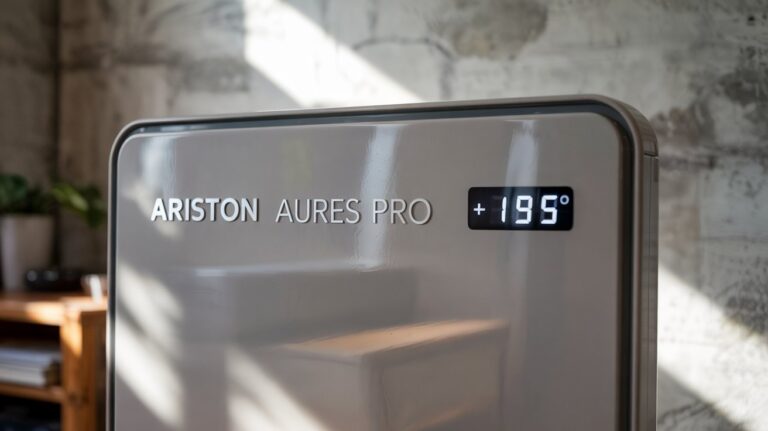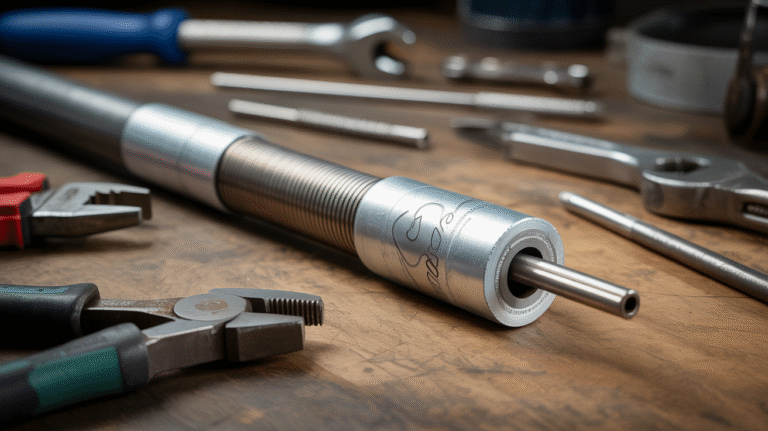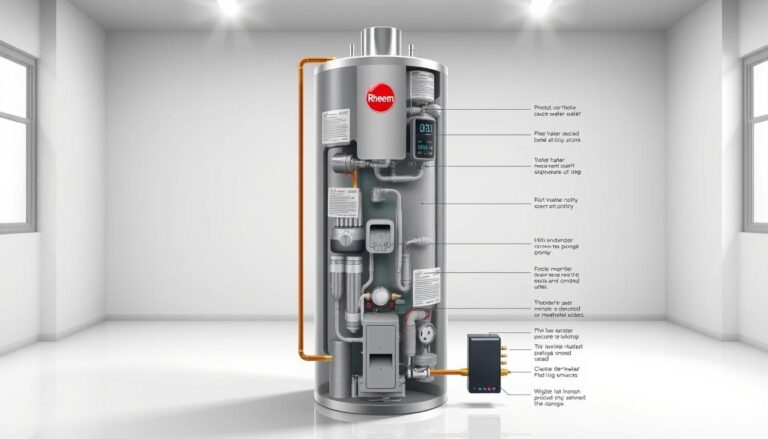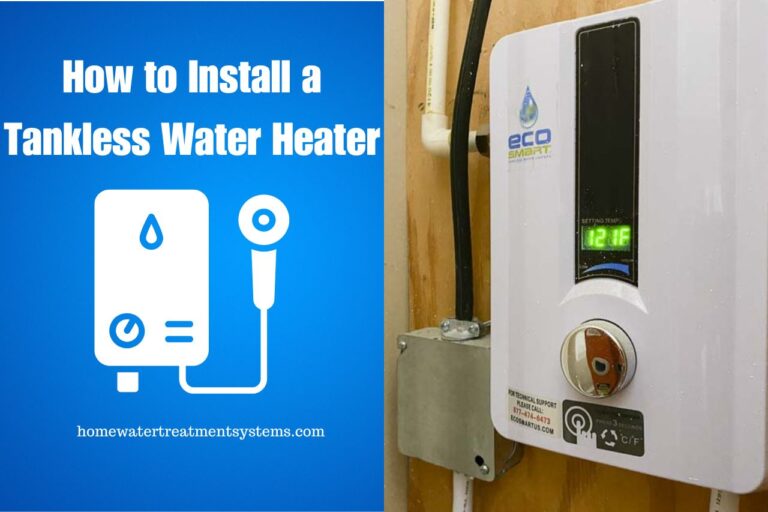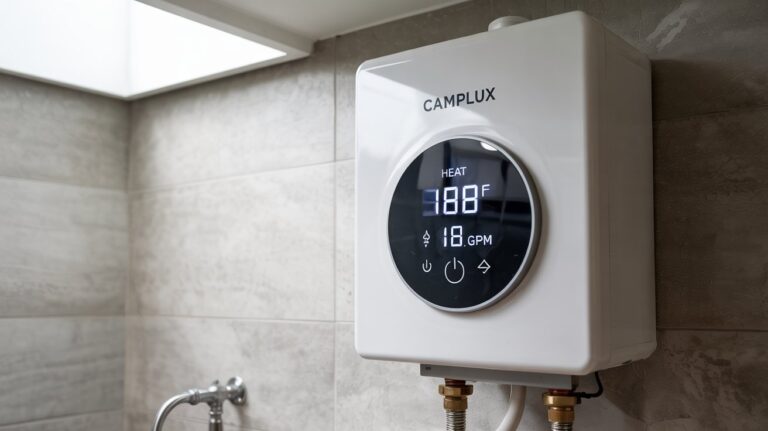Understanding Why a Tankless Water Heater Might Leak
Have you ever wondered why your tankless water heater, a system that seems so efficient, might occasionally leak? It’s a common question, and understanding the reasons behind it can help you avoid potential headaches in your home. Tankless water heaters, also known as on-demand water heaters, are celebrated for their energy efficiency and compact design. However, like any appliance, they can sometimes develop issues that need your attention.
In this guide, you’ll learn about the various reasons a tankless water heater might leak and what you can do about it. With this knowledge, you’ll be better prepared to maintain your water heater and handle potential problems if they arise.

How Does a Tankless Water Heater Work?
Understanding how a tankless water heater operates is the first step in diagnosing why it might leak. Unlike traditional water heaters that store water in a tank, tankless models heat water directly as it flows through the unit. When you turn on the hot water tap, cold water travels through a pipe into the heater, where either a gas burner or an electric element heats the water. This design provides hot water on demand, reducing the need for a bulky storage tank, and minimizes energy loss associated with keeping water hot all the time.
Benefits and Drawbacks
A tankless water heater is highly efficient because it only heats water as you need it, which can lead to lower energy bills over time. Additionally, you don’t run out of hot water, and the absence of a tank means a reduced risk of tank-related leaks. However, tankless systems can sometimes have higher upfront costs and may require more maintenance to catch potential problems early on.
Common Causes of Tankless Water Heater Leaks
Even with their advanced technology, tankless water heaters are not entirely immune to leaks. Here are some common causes that might result in unwanted water around the unit.
Improper Installation
One of the most frequent causes of leaks in tankless water heaters is improper installation. If connections are not secured correctly, or if the unit is installed incorrectly, leaks can develop over time. It’s crucial to have an experienced and licensed technician handle the installation to ensure all connections are tight and that the system is fitted according to manufacturer specifications.
Corrosion
Corrosion can occur both internally and externally in the unit, particularly if the water in your area has high mineral content. Hard water can leave mineral deposits that build up over time, leading to corrosion of the internal components or pipes. Corrosion weakens the metal and can eventually cause leaks.
Internal Corrosion
Internal corrosion might not be immediately visible, but it can be just as problematic. Regular maintenance and checks are necessary to catch internal corrosion before it causes significant damage.
External Corrosion
External corrosion can happen when the unit is exposed to moisture, especially in basements or humid areas. This can otherwise go unnoticed because the damage happens on the outside of the unit.
Excessive Water Pressure
While tankless systems are designed to handle a specific range of water pressure, excessive pressure can stress the unit and cause leaks at the connectors or pipes. High water pressure can occur due to household plumbing issues or municipal supply variations.
Thermal Expansion
Tankless water heaters are susceptible to thermal expansion issues under certain conditions. As water heats, its volume increases, which can sometimes lead to stress in flexible connectors or pipes, especially if expansion tanks or pressure relief valves are not installed correctly.
Diagnosing a Leak
Spotting a problem early can save you time and money. Be on the lookout for these signs that your tankless water heater might be leaking:
Unexpected Water Puddles
Discovering mysterious puddles near your water heater can be alarming. This is a sure sign that something’s not working as it should, and you’ll want to investigate further.
Decreased Water Pressure
If the leak isn’t visible, you might notice reduced water pressure when you open a hot water tap. This reduction can indicate a leak within the system where water is escaping instead of flowing through the outlets.
High Energy Bills
A sudden increase in your energy bill can also signal a leak. If your heater is working harder than usual to heat water that’s escaping, it could cause your energy costs to spike.
How to Fix a Leak
Once you have diagnosed the leak or have an idea of its source, you’ll want to fix it as soon as possible. Depending on the issue’s severity, you might attempt minor repairs yourself or require professional assistance.
Tighten Connections
If loose fittings or connections are the source, tightening them could resolve the issue. Be sure to turn off the water supply and power to the unit before making any adjustments.
Replace Corroded Parts
If corrosion is evident, replacing corroded parts is necessary. This might include sections of pipe or connectors. It’s wise to consult with a qualified technician to assess the extent of the damage.
Pressure Relief Valve
Inspect the pressure relief valve to ensure it functions correctly. This valve helps control excessive pressure within the system, and malfunctions can cause leaks. Replacing a faulty valve can often solve the pressure-related leaking issue.
Professional Inspection
If in doubt, or if the problem seems extensive, it’s best to consult a professional. Technicians are equipped with the knowledge and tools to effectively repair or replace components that are causing leaks.

Preventative Measures
Of course, preventing problems before they start can save you a lot of trouble. Here are some effective steps to take:
Regular Maintenance
Schedule regular maintenance with a professional who can check for signs of wear and tear. A routine check can often identify potential issues before they escalate into leaks.
Install a Water Softener
If you live in an area with hard water, installing a water softener can significantly prolong your heater’s lifespan. Softening the water will reduce mineral buildup and the risk of corrosion.
Check Water Pressure
Regularly checking your home’s water pressure can help prevent stress on your tankless system. Ensure it stays within the manufacturer’s recommended range to avoid potential issues.
Use Quality Parts
When replacement parts are necessary, always opt for high-quality components that match the original specifications of your unit.
Pros and Cons Table
Here’s a quick look at the pros and cons of owning a tankless water heater to help you weigh your options:
| Pros | Cons |
|---|---|
| Energy-efficient | Higher initial cost |
| Unlimited hot water supply | Can require more maintenance |
| Space-saving design | Sensitive to water pressure and scaling |
| Reduced risk of tank-related leaks | May need upgrades to existing plumbing |
Conclusion
While tankless water heaters offer many advantages, understanding the potential causes of leaks is essential for smooth operation. By recognizing the signs of a leak and knowing when to take action, you can ensure that your water heater remains in top condition. Heightened awareness and regular maintenance are your best allies in preventing leaks and extending your heater’s service life. If you stay vigilant about the possible issues detailed here, you’ll be able to keep enjoying the benefits of a tankless water heater without the hassle of unexpected leaks.


